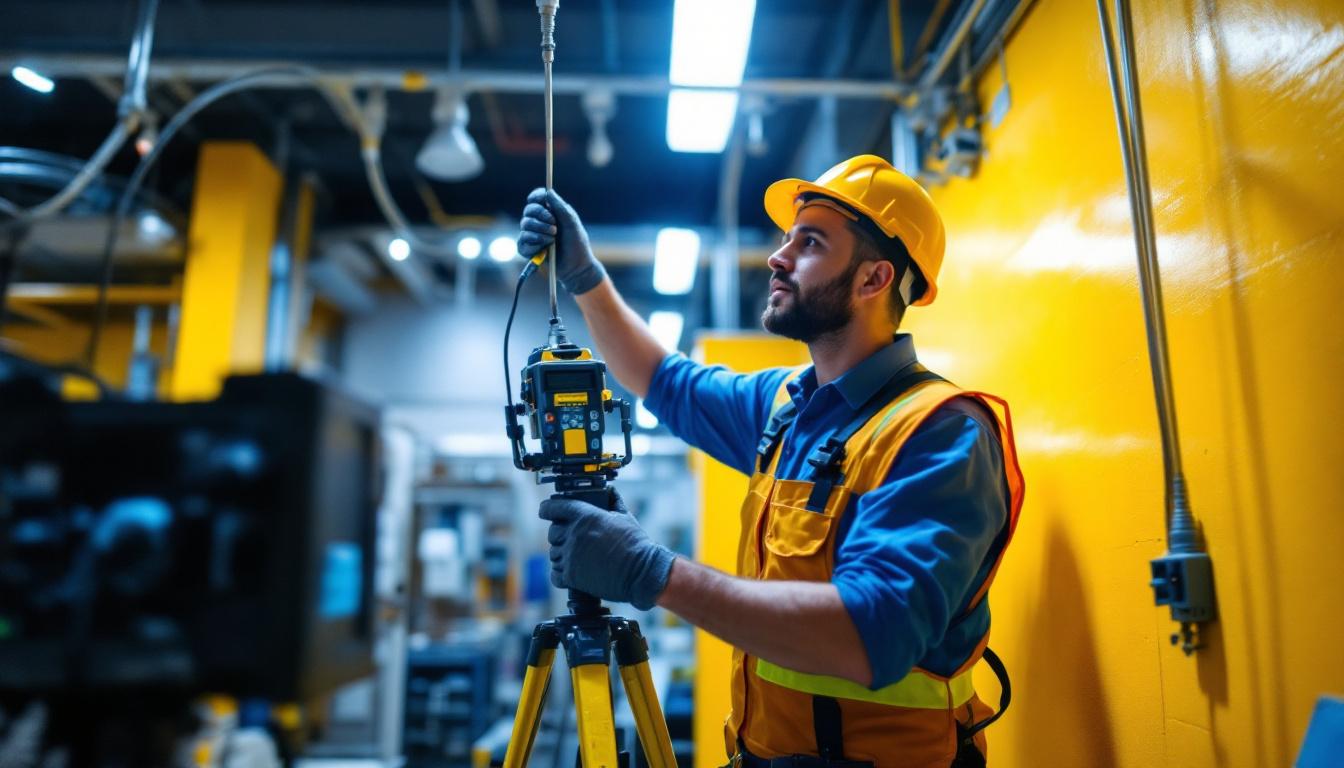
Lighting contractors are constantly seeking solutions that improve efficiency, reduce costs, and enhance reliability on the job. One technology that has increasingly become essential in modern lighting projects is the inverter. But what exactly is an inverter, and why should lighting professionals prioritize its integration?
An inverter is an electronic device that converts direct current (DC) from sources such as batteries or solar panels into alternating current (AC), which powers most lighting fixtures and electrical equipment. This conversion is crucial in settings where the primary power source is DC or where backup power is necessary during outages.
In the context of lighting installations, inverters enable contractors to work with a variety of power sources, ensuring uninterrupted lighting performance. This adaptability not only broadens the scope of possible projects but also enhances the reliability of lighting systems, which is a critical factor for clients.
Moreover, the integration of inverters can significantly contribute to energy efficiency, especially in sustainable lighting projects. By utilizing renewable energy sources like solar panels, inverters allow for the conversion of solar energy into usable electricity, reducing reliance on traditional power grids. This not only lowers energy costs for clients but also aligns with growing environmental concerns, making projects more appealing to eco-conscious consumers. Additionally, with advancements in inverter technology, many modern inverters come equipped with smart features that allow for real-time monitoring and control, enabling contractors to optimize energy consumption and performance further.
Furthermore, inverters can play a pivotal role in enhancing the longevity of lighting systems. By providing a stable power supply and minimizing voltage fluctuations, inverters help protect sensitive lighting equipment from damage, which can occur due to inconsistent power sources. This reliability translates to lower maintenance costs and longer lifespans for lighting fixtures, ultimately benefiting both contractors and clients. As the demand for high-quality, dependable lighting solutions continues to rise, the role of inverters in ensuring optimal performance cannot be overstated.
Lighting contractors often face challenges related to power interruptions, especially in commercial or industrial environments where continuous lighting is mandatory. Inverters paired with battery backup systems provide a seamless transition during power outages, maintaining lighting without flicker or delay.
This reliability reduces the need for emergency call-outs and reactive maintenance, saving contractors significant time and labor costs. Clients benefit from consistent lighting, which is vital for safety, security, and operational efficiency. Moreover, the presence of uninterrupted lighting can enhance the overall ambiance of a space, making it more inviting and functional, whether it’s a retail store, a warehouse, or an office building. The psychological impact of well-lit environments cannot be overstated; studies have shown that proper lighting can improve employee productivity and customer satisfaction, further emphasizing the importance of reliable power solutions.
Many lighting projects involve integrating renewable energy sources such as solar panels. Inverters are essential in these setups, converting the DC output of solar arrays into usable AC power for lighting fixtures. This integration reduces dependency on grid power and supports sustainable building practices.
By using inverters, lighting contractors can offer turnkey solutions that incorporate clean energy, often qualifying clients for incentives or rebates. This capability not only enhances a contractor’s service portfolio but also positions them as forward-thinking professionals in a competitive market. Additionally, the growing trend towards sustainability means that clients are increasingly looking for energy-efficient solutions that not only lower their carbon footprint but also reduce operating costs over time. By integrating inverters into their offerings, contractors can help clients navigate the complexities of energy regulations and certifications, ensuring compliance while maximizing the benefits of renewable energy.
Events, construction sites, and emergency response scenarios often require temporary lighting setups that are independent of fixed power sources. Inverters enable the use of portable battery banks or generators to power lighting equipment efficiently.
This flexibility allows contractors to quickly deploy lighting solutions without extensive wiring or reliance on unstable power grids. The result is faster project turnaround times and increased client satisfaction. Furthermore, the ability to provide temporary lighting can be a game-changer in emergency situations, where rapid response is crucial. For instance, in disaster recovery efforts, having reliable lighting can significantly improve safety for rescue operations and aid distribution. As such, contractors who are equipped with inverter technology can position themselves as essential partners in both planned events and unforeseen emergencies, reinforcing their value in the marketplace.
Modern inverters are designed with high efficiency, minimizing energy loss during DC to AC conversion. This efficiency translates into reduced electricity consumption, particularly when paired with renewable energy sources or energy storage systems.
For lighting contractors, recommending inverter-based systems means clients experience lower utility bills, which can be a compelling selling point. Over time, these savings contribute to a more attractive return on investment for lighting projects.
Power fluctuations and surges can severely damage sensitive lighting equipment, leading to costly repairs or replacements. Inverters often include built-in surge protection and voltage regulation features that safeguard lighting fixtures and control systems.
By installing inverters, contractors help extend the lifespan of lighting components, reducing warranty claims and enhancing their reputation for quality workmanship.
Inverter systems can simplify wiring and reduce the need for extensive electrical infrastructure, especially in off-grid or hybrid power scenarios. This simplification can lower labor hours and material costs during installation.
Additionally, the modular nature of many inverter solutions allows for easier scalability and future upgrades, which means less disruption and expense when expanding or modifying lighting systems.
Selecting the right inverter involves assessing the power demands of the lighting system, including wattage, voltage, and load type (resistive, inductive, or capacitive). Lighting contractors must ensure the inverter can handle peak loads and provide stable output.
Attention to inverter waveform quality is also important; pure sine wave inverters are preferred for sensitive lighting controls and dimmers, as they deliver cleaner power compared to modified sine wave alternatives.
Efficiency ratings, typically expressed as a percentage, indicate how much input power is converted to usable output. Higher efficiency reduces energy waste and operational costs. Contractors should prioritize inverters with proven reliability and robust warranties to minimize maintenance issues.
Customer reviews, manufacturer reputation, and certifications such as UL or CE can provide valuable insights into inverter quality.
Ease of installation is a critical factor for contractors aiming to optimize labor time. Compact, lightweight inverters with clear wiring diagrams and user-friendly interfaces facilitate faster setup.
Compatibility with existing lighting controls, battery systems, and renewable energy components should be verified to avoid integration challenges. Some inverters offer smart features like remote monitoring and diagnostics, which can enhance ongoing maintenance efficiency.
A lighting contractor was tasked with retrofitting a large office building to improve energy efficiency and ensure uninterrupted emergency lighting. By installing inverters connected to a battery backup system, the contractor provided seamless power during outages and enabled integration with solar panels on the roof.
The project resulted in a 30% reduction in energy costs and eliminated downtime during power failures, significantly enhancing tenant satisfaction and safety compliance.
For a series of outdoor concerts, a contractor utilized portable inverters paired with battery banks to power stage and ambient lighting. This approach avoided the need for extensive generator use and complicated cabling, allowing rapid deployment and teardown.
The inverter solution reduced fuel consumption and noise pollution, while also lowering labor costs due to simplified installation processes.
In an industrial warehouse, reliable emergency lighting is critical for worker safety. The contractor installed inverters with surge protection and battery backup to ensure that emergency lights remained operational during power interruptions.
This system not only met stringent safety regulations but also reduced maintenance calls by 40%, demonstrating the value of inverter technology in demanding environments.
As the lighting industry evolves, the integration of smart technologies and renewable energy sources continues to accelerate. Inverters will play an increasingly central role in enabling these advancements.
Emerging trends include inverter systems with advanced communication protocols for integration into building management systems, enhancing energy monitoring and control. Additionally, improvements in inverter efficiency and size will allow for more compact and versatile lighting solutions.
Lighting contractors who embrace inverter technology today position themselves to capitalize on these trends, offering clients cutting-edge, cost-effective, and sustainable lighting solutions.
Inverters offer lighting contractors a powerful tool to enhance project efficiency, reduce costs, and increase system reliability. By enabling seamless power conversion, backup power capabilities, and integration with renewable energy, inverters address many challenges faced during lighting installations and maintenance.
Contractors who understand and leverage inverter technology can differentiate themselves in a competitive market, deliver superior client outcomes, and future-proof their service offerings. The investment in inverter knowledge and equipment is not just a technical upgrade—it is a strategic advantage that saves time and money while elevating professional standards.
Ready to take your lighting projects to the next level with the latest inverter technology? Look no further than LumenWholesale for all your lighting needs. We provide contractors with high-quality, spec-grade lighting products, including state-of-the-art inverters, at unbeatable wholesale prices. Say goodbye to inflated markups and hello to superior lighting products that meet the highest industry standards. Plus, with free shipping on bulk orders, you can stock up on premium lighting solutions at the best value — all without hidden fees or compromises. Elevate your lighting installations with the perfect blend of quality, affordability, and convenience at LumenWholesale. Shop now and experience the difference that true wholesale pricing can make.

Discover the crucial role flush LED ceiling lights play in modern lighting projects.

Discover the top strategies lighting contractors use to optimize automatic timers for lights.

Discover the essential checklist for lighting contractors working with explosion-proof lamps.

Discover the frequent pitfalls lighting contractors encounter when installing freezer lights.